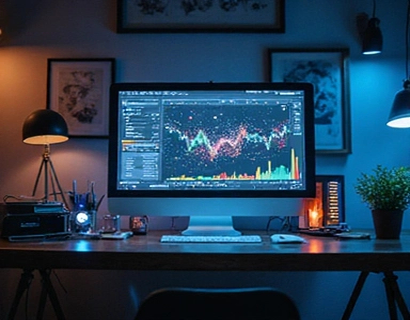Exploring the World of Tattoos: A Comprehensive Guide for Enthusiasts and Professionals
The art of tattooing has evolved significantly over the years, transforming from a niche practice into a mainstream form of self-expression and body art. For tattoo enthusiasts and professionals alike, staying informed about the latest trends, services, and expert knowledge is crucial. This guide leverages an advanced AI chat platform to provide a deep dive into the tattoo industry, offering secure insights and expert advice to help users navigate the complex world of tattoos.
Understanding Tattoo Services
When considering getting a tattoo, it's essential to understand the various services available. The primary services include design consultation, tattoo removal, and aftercare advice. Design consultation involves working with a tattoo artist to create a custom design or select from pre-existing templates. This process ensures the final product aligns with the client's vision and preferences.
Tattoo removal services have become increasingly popular, especially for those looking to remove old or unwanted tattoos. Modern laser technology has made this process more effective and less painful. Aftercare advice is crucial for ensuring the tattoo heals properly and maintains its quality over time. This includes instructions on cleaning, moisturizing, and avoiding certain activities.
Trends Shaping the Tattoo Industry
The tattoo industry is constantly evolving, with new trends emerging regularly. One significant trend is the rise of minimalist and geometric designs. These clean, simple lines and shapes offer a modern aesthetic that appeals to a broad audience. Another trend is the resurgence of traditional tribal and Polynesian styles, which are celebrated for their intricate patterns and cultural significance.
Sustainability is also becoming a key focus, with many studios adopting eco-friendly practices. This includes using biodegradable inks, recycling materials, and minimizing waste. Additionally, the use of digital technology, such as 3D modeling and augmented reality, is enhancing the design process, allowing clients to visualize their tattoos before committing to the needle.
Expert Knowledge and Artistry
The skill and expertise of a tattoo artist play a vital role in the success of a tattoo. A well-trained artist understands anatomy, color theory, and the nuances of different skin types. They also possess the ability to translate a client's ideas into a realistic and aesthetically pleasing design. Researching an artist's portfolio, reading reviews, and asking for references are essential steps in finding a qualified professional.
Continuous education and training are crucial for artists to stay current with industry standards and techniques. Many reputable studios offer workshops and seminars to help artists expand their skill set. This commitment to ongoing learning ensures that clients receive the best possible service.
Connecting with Professionals
Building a network of trusted professionals is vital for tattoo enthusiasts. This includes finding a reliable tattoo studio, a skilled artist, and a supportive community. Online platforms and social media groups can be valuable resources for connecting with others who share similar interests and experiences.
Professional associations and organizations also provide a platform for networking and learning. These groups often host events, conferences, and webinars that offer insights into the latest industry developments and best practices. Engaging with these communities can help enthusiasts stay informed and inspired.
Ensuring Safety and Hygiene
Safety and hygiene are paramount in the tattoo industry. Reputable studios adhere to strict cleanliness standards, using sterilized equipment and disposable needles to prevent infections. Clients should ask about the studio's hygiene practices and verify that they meet or exceed industry regulations.
Allergies and infections are potential risks, but they can be minimized with proper precautions. Discussing any health concerns with the artist beforehand is essential. Some individuals may require special care or alternative ink types to ensure a safe and successful tattooing experience.
The Role of Technology in Tattooing
Technology is revolutionizing the tattoo industry in various ways. Digital design tools allow artists to create precise and detailed designs, which can be shared with clients for approval. This process reduces the likelihood of errors and ensures a higher level of satisfaction.
Laser tattoo removal technology has advanced significantly, making it more effective and less painful. Modern lasers can target specific ink pigments, breaking them down into smaller particles that the body can more easily eliminate. This has made it possible to remove even the oldest and darkest tattoos with greater efficiency.
Mobile apps and online platforms are also enhancing the client experience. Some studios offer virtual consultations, allowing clients to discuss their ideas and get initial feedback without an in-person visit. This convenience is particularly beneficial for those with busy schedules or living in remote areas.
Cultural Significance and Respect
Tattoos hold deep cultural and personal significance for many individuals. It's important to approach the practice with respect and an understanding of its history and meaning. For example, certain designs and symbols may have specific cultural connotations that should be honored and not appropriated without proper context.
Educating oneself about the cultural background of different tattoo styles can enrich the experience and show respect to the traditions from which they originate. This knowledge can also help clients make more informed decisions about the designs they choose.
Long-Term Considerations
While the initial excitement of getting a tattoo is undeniable, it's crucial to consider the long-term implications. Tattoos are permanent and can affect future opportunities, such as employment or travel. Researching how different industries view tattoos and preparing for potential questions or concerns is part of the responsible decision-making process.
Maintenance and aftercare are also long-term commitments. Regular check-ups with a dermatologist can help monitor the tattoo's condition and address any issues early. Proper care, including protection from sun exposure and avoiding harsh chemicals, ensures the tattoo remains vibrant and healthy over time.
Conclusion
The world of tattoos is rich and diverse, offering endless possibilities for self-expression and artistic exploration. By leveraging the insights and expertise available through advanced AI chat platforms, enthusiasts and professionals can navigate this world with confidence and security. Whether you're considering your first tattoo or are a seasoned artist, staying informed and connected to the community is key to a rewarding and successful journey in the tattoo industry.











































